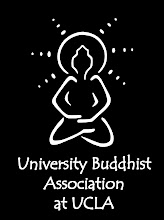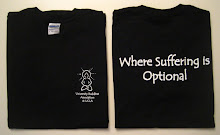Here's the latest update of the Buddhist protests against the South Korean government as result of what the Buddhist community feel is religious bias. The Buddhist leaders have put great pressure on the South Korean administration to issue a public apology and the President Lee Myung-bak said on Tuesday, "It is deeply regrettable that some officials caused misunderstanding among Buddhists and thus hurt their feelings.'' However, the Buddhists don't buy it. Now they are demanding another public apology and the dismissal of the police chief. If the President does not comply, Buddhist leaders threaten to hold massive rallies nationwide.
Now how did this situation get so messy? Was it the result of the administration mishandling the apology and policy reforms? Or are the Buddhist leaders just being too stubborn? Certainly, even in America, where the Constitution separates the Church from state in the same way the South Korean Constitution does, Christianity has more obvious role in government and politics (just look at the presidential campaigns) than that of South Korean. So why don't non-Christian groups in America protest in the name of religious discrimination? Why is the SK administration having trouble handling the situation and why are the Budddhists still dissatisfied?
Well, as many might suspect, religion in SK society is very different than religion in American society. Firstly, the government is most likely not used to confronting religious issues. In a country where protests at the capital are quite common, massive religious rallies are considered rare. Furthermore the percentage of the population that identify with a religion is very different from that of America. To begin with, 2005 statistics found on Wikipedia state about 46.5% of South Koreans express no religious preference, 29.3% are Christians, 22.8% are Buddhist, and the rest adhere to several different new religious movements created under the increasing influence of Christianity and Western culture. In America, 2007 statistics from the CIA World Factbook state 51.3% Protestants, 23.9% Roman Catholics, 1.7% Mormon, 1.6% other Christian, 1.7% Jewish, 0.7% Buddhist, 0.6% Muslim, 2.5% other or unspecified, 12.1% unaffiliated, 4%none. What is apparent is that not only does SK have less religious diversity, but also there is a large portion of people who are not religious at all. The administration probably isn't used to addressing political issues using religion in the same way the US administration addresses issues such as abortion, homosexuality and marriage, and cvolution vs creation using Christianity.
The Buddhist community is also having a hard time handling this situation probably because the presence of Christianity in SK is still relatively new, as it has played key roles in democratic movements and national modernization since the 1980s. In America, though we have great religous diversity, the majority of followers are still Christian while in Korea, there is a close percentage between Christian and Buddhist followers. With such close numbers, there's bound to be competition and conflicts between the once deeply-rooted traditional religions of Buddhism, Shamanism, and Confucianism and the relatively new and expanding religion of Christianity. In America, we have yet to see any religion challenge the spotlight of Christianity.
Hopefully, compromise will be reached between the SK administration and Buddhist leaders. They better find a way to coexist peacefully; after all, neither the Christians nor the Buddhists look like they're going anywhere.






No comments:
Post a Comment